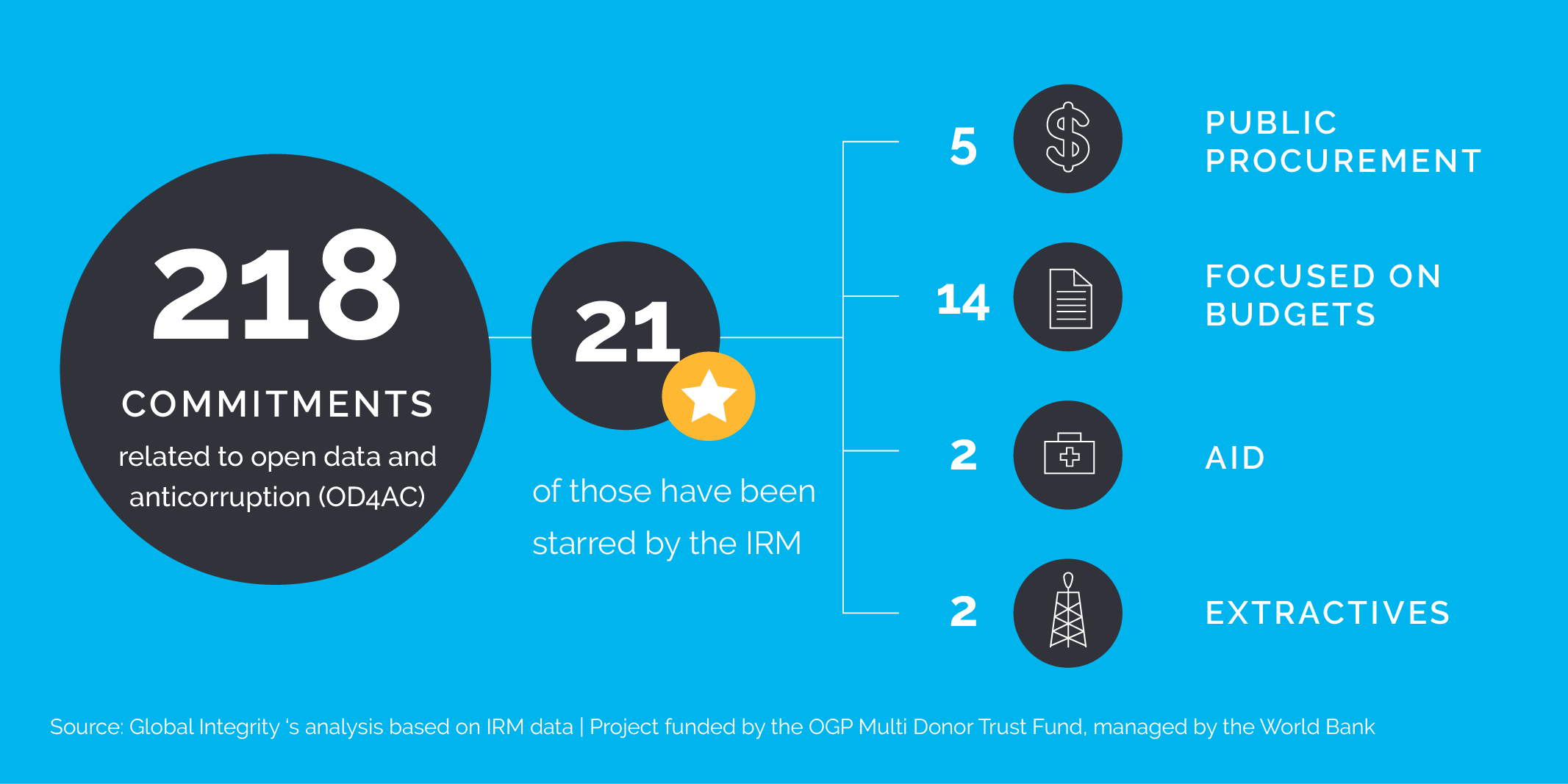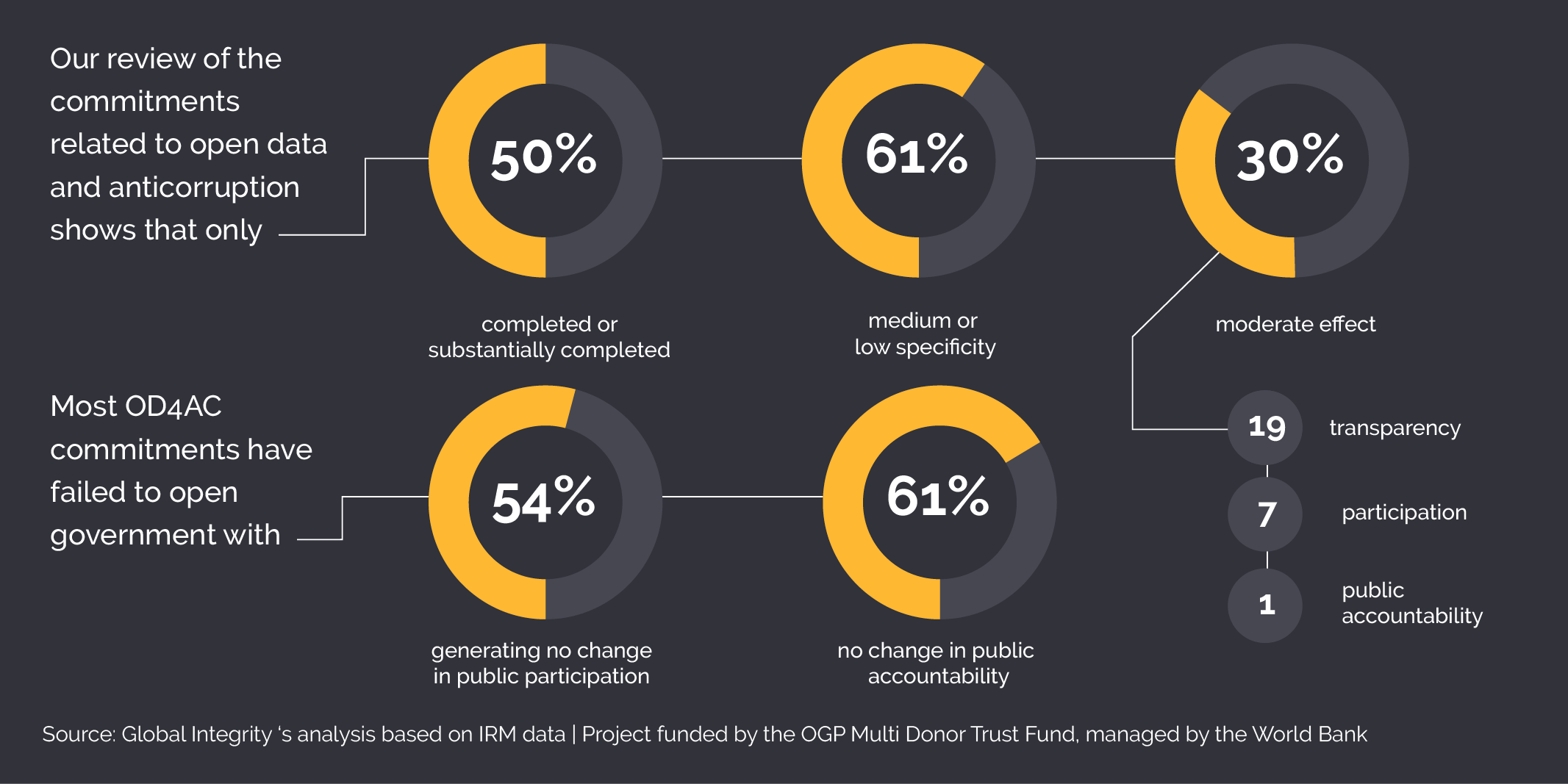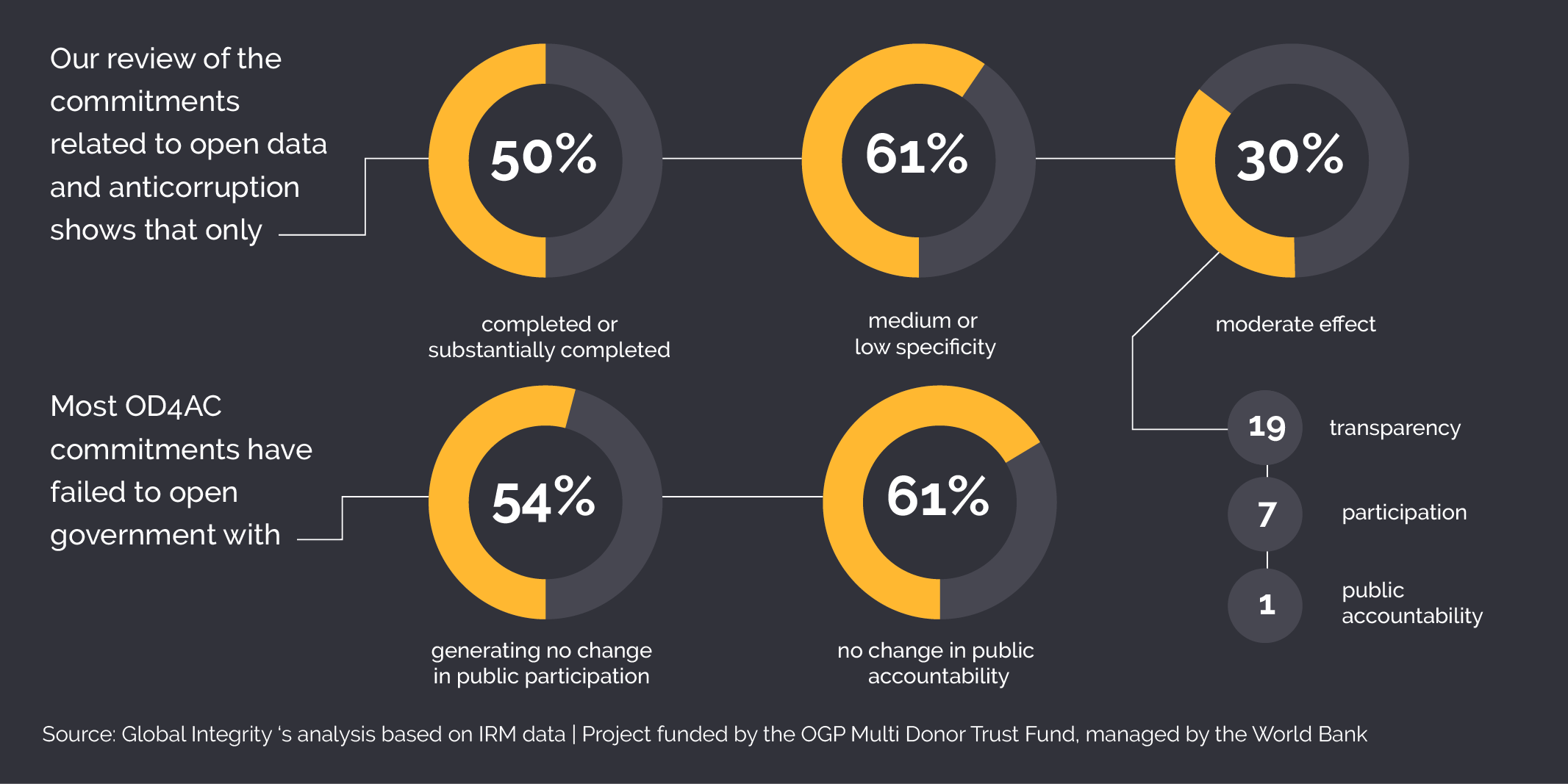Originally published on Open Data Charter
Corruption is a structural issue, depriving citizens of funding for essential services and limiting wealth creation opportunities, while damaging the trust, legitimacy, and effectiveness of public institutions. Tackling corruption requires coordinated efforts, including political will, legal frameworks, and accountable institutions.
Opening up critical data can be a powerful tool in supporting people’s agency in improving communities and embedding effective response mechanisms within public institutions. This approach has often been used in how Open Government Partnership (OGP) members seek to tackle corruption. Yet OGP commitments have mostly focused attention on transparency (i.e., aiming to release datasets) alone. In order to achieve systemic change, the incentives that encourage corrupt behaviour must be confronted.
Technical and political dynamics related to opening and using data to address specific corruption problems must also be taken into account. To this end, clear theories of change need to be incorporated, accurately linking outputs to the desired anti-corruption outcomes and impact. It is rare to see adequate monitoring, evaluation, and learning (MEL) plans that gather evidence on progress toward achieving the intended change and use this evidence to inform implementation.
Since OGP’s inception, 5 percent of all commitments have included ways in which access and use of data can help tackle corruption. The majority of these focus on budgets, followed by a handful in procurement, aid, and extractives (see chart below). Of these, 10 percent have been starred as reforms with the potential to transform ‘business as usual’ by the Independent Reporting Mechanism (IRM).

Yet, only half of these have been completed, and 61 percent have medium or low specificity, meaning that there is little or no information available to understand if and how the given commitment leads to impact.
A general review of all OGP commitments that have been evaluated by IRM shows similar rates (64 percent have medium or low specificity and only 14 percent are starred as transformative) — indicating that there is unfinished business regarding the quality of articulation and the capacity to deliver.

In seeking ways to enhance the effectiveness of OGP National Action Plans (NAP) leading to meaningful change, we are looking to better understand both the obstacles and the enabling conditions needed. With support from the OGP Multi- Donor Trust Fund (MDTF) managed by the World Bank, we have partnered with OGP national coalitions in Latin America and Africa, Global Integrity, and the Open Data for Development Network (OD4D) supported by the International Research Development Centre — OD4D hubs in Latin American Open Data Initiative (Iniciativa Latinoamericana de Datos Abiertos — ILDA) and Africa Open Data Network (AODN) will help co-design the problem-focused release and use of data for anti-corruption commitments, while building on learning frameworks to overcome implementation challenges.
Using a mixed-method approach, we seek to provide a greater understanding of the different mechanisms connecting data availability and action with regard to anti-corruption systems and initiatives, including action research and peer learning; problem-focused learning cycles; and regional network and coalition building.
This work will draw upon important findings from organisations working in this field, such as Transparency International’s compendium of good practices on anti-corruption for OGP action plans, TAI’s Open Government Guide, and our own Open Up Guide for Anticorruption — which describe a set of priority anti-corruption measures in which openness can make a difference. Areas of focus include budgets, contracts, asset and interest declarations, beneficial ownership, political financing, whistleblower protection, aid, extractives, and lobbying. While including transparency measures in our work, we will expand upon these to focus on capacity-building, demand-driven participation, and gathering evidence on progress toward effective OGP NAP implementation.
We are thrilled to be collaborating with the OGP community and OD4D Network hubs in Latin America and Africa in order to gain a better understanding of practical tactics for using open data to address corruption.
Please reach out to info@opendatacharter.org if you want to be part of the journey!







